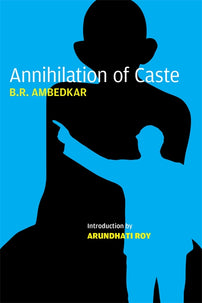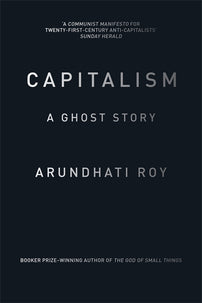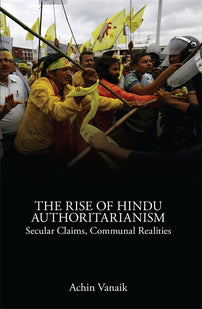Kashmir: the case for freedom
The recent decision by the Indian prime minister Narendra Modi to end Kashmir's special status has once more brought the brutal colonial-style military occupation of the region by the world's largest democracy to global attention. In this, an extract from the book Kashmir: The Case for Freedom, Pankaj Mishra asks why, despite the demands of the population, "does the immense human suffering of Kashmir occupy such an imperceptible place in our moral imagination?"

Once known for its extraordinary beauty, the valley of Kashmir now hosts the biggest, bloodiest and also most obscure military occupation in the world. With more than eighty thousand people dead in an anti-India insurgency backed by Pakistan, the killing fields of Kashmir dwarf those of Palestine and Tibet. In addition to the everyday regime of arbitrary arrests, curfews, raids, and checkpoints enforced by nearly 700,000 Indian soldiers, the valley’s four million Muslims are exposed to extrajudicial execution, rape, and torture, with such barbaric variations as live electric wires inserted into penises.
Why, then, does the immense human suffering of Kashmir occupy such an imperceptible place in our moral imagination? After all, the Kashmiris demanding release from the degradations of military rule couldn’t be louder or clearer. India has contained the insurgency of 1989, which it provoked with rigged elections and massacres of protestors. The hundreds of thousands of demonstrators who periodically fill the streets of Kashmir’s cities today are overwhelmingly young, many in their teens, and armed with nothing more lethal than stones. Yet the Indian state seems determined to strangle the voices of the new generation as it did those of the old one. In the summer of 2010, soldiers shot dead more than a hundred protesters, most of them teenagers.
The New York Times described these protests as a comprehensive ‘intifada-like popular revolt’. They have a broader mass base than the Green Movement does in Iran, or indeed than the uprisings in the Arab world have enjoyed. But no colour-coded revolution is heralded in Kashmir by Western commentators. BBC and CNN don’t endlessly loop clips of little children being shot in the head by Indian soldiers. Bloggers and tweeters in the West fail to keep virtual vigils by the side of the dead and the wounded. The United Nations does not hold emergency sessions to discuss its response to the killing of scores of unarmed protestors.
Kashmiri Muslims are understandably bitter. As Parvaiz Bukhari, a journalist, says, the stones flung randomly by protesters have become the expression of a ‘neglected people’ convinced that the world deliberately ignores their plight. The veteran Kashmiri journalist Masood Hussain confesses to the near-total futility of his painstaking auditing of atrocity over two decades. For Kashmir has turned out to be a ‘great suppression story’.
The cautiousness – or timidity – of Western politicians is easy to understand. Apart from appearing a lifeline to flailing Western economies, India is a counterweight to China, at least in the fantasies of Western strategists. A month before his election, Barack Obama declared that resolving the ‘Kashmir crisis’ was among his ‘critical tasks’. Since then, Obama hasn’t uttered a word about this ur-crisis that has seeded all major conflicts in South Asia. David Cameron was advised to maintain a similar strategic public silence during his visit to India last year.
Those Western pundits who are always ready to assault illiberal regimes worldwide on behalf of democracy ought not to be so tongue-tied. Here is a well-educated Muslim population, heterodox and pluralist by tradition and temperament, and desperate for genuine democracy. However, intellectuals preoccupied by transcendent, nearly mystical, battles between civilization and barbarism tend to assume that ‘democratic’ India, a natural ally of the ‘liberal’ West, must be doing the right thing in Kashmir, that is, fighting ‘Islamofascism’. Thus Christopher Hitchens could call upon the Bush administration to establish a military alliance with ‘the other great multi-ethnic democracy under attack from Muslim fascism’, even as an elected Hindu nationalist government stood accused of organizing a pogrom that killed more than two thousand Muslims in the Indian state of Gujarat.
Electoral democracy in multiethnic, multireligious India is one of the modern era’s most utopian political experiments, increasingly vulnerable to malfunction and failure and, consequently, to militant disaffection and state terror. But then the West’s new masters of humanitarian war, busy painting grand ideological struggles on broad, rolling canvases, are prone to miss the human position of suffering and injustice.
Indian writers and intellectuals, who witnessed the hijacking of India’s secular democracy by Hindu supremacists, seem better acquainted with the messy realities concealed by stirring abstractions. But on Kashmir they often appear as evasive as their Chinese peers are on Tibet.
People in mass democracies are usually slow to recognize the nature of the undeclared wars conducted by their representatives. But by the late 1960s there was hardly a public figure in the United States – from J.K. Galbraith to Philip Roth – who did not feel compelled to build up a chorus of denunciation against the country’s deeply dishonourable involvement in Indochina. In comparison, the deaths, in less than two decades, of nearly eighty thousand people in neighbouring Kashmir have barely registered in the Indian liberal conscience.
Indians may have justifiably recoiled from the fundamentalist and brutish aspect of the revolt in the valley. But the massive non-violent protests in Kashmir since 2008 have hardly released a flood of pent-up sympathy from them.
A few Indian commentators have deplored, consistently and eloquently, India’s record of rigged elections and atrocity in the valley, even if they speak mainly in terms of defusing rather than heeding Kashmiri aspirations. But many more have tended to become nervous at the mention of disaffection in the Kashmir Valley. ‘I am not taking up that thorny question here’, Amartya Sen writes in a footnote devoted to Kashmir in The Argumentative Indian. In the more resonant context of a book titled Identity and Violence, Sen yet again relegates the subject to a footnote.
A commonplace secular-nationalist argument in India is that Kashmiri Muslims, if given the slightest concessions by India, would go radically Islamist or embrace Pakistan, emboldening separatists in the northeast. But it has never been clear that radical Islam has a sustainable appeal in Kashmir. The Kashmiri feeling for Pakistan, too, is highly capricious, almost entirely fuelled by hatred of the Indian military occupation.
Certainly, as Arundhati Roy’s near-imprisonment for ‘sedition’ proves, anyone initiating a frank discussion of Kashmir in India risks not only the malevolence of Hindu nationalists but also a storm of vituperation from the Indian understudies of Bill O’Reilly and Sean Hannity. The choleric TV anchors, partisan journalists, and opinion-mongers of India’s corporate media routinely amplify the falsehoods and deceptions of Indian intelligence agencies in Kashmir. Blaming Pakistan or Islamic fundamentalists, as The Economist pointed out after massive peaceful demonstrations in Kashmir in 2010, has ‘got much harder’ for the Indian government, which has ‘long denied the great extent to which Kashmiris want rid of India.’ Nevertheless, it tries, and as the political philosopher Pratap Bhanu Mehta, one of the few fair-minded commentators on this subject, points out, the Indian media now acts in concert with the government ‘to deny any legitimacy to protests in Kashmir.’
This effective censorship reassures those Indians anxious not to let mutinous Kashmiris sully the currently garish notions of India as an ‘economic powerhouse’ and ‘vibrant democracy’ – the calling cards with which Indian elites apply for membership in the exclusive clubs of the West. In Kashmir, however, the net effect is deeper anger and alienation. As Parvaiz Bukhari puts it, Kashmiris hold India’s journalists, as much as its politicians, responsible for ‘muzzling and misinterpreting’ them.
‘The promise of a liberal India’, Mehta writes, ‘is slowly dying.’ For Kashmiris, this promise has proved as hollow as that of the fundamentalist Islam exported by Pakistan. Liberated from political deceptions, the young men on the streets of Kashmir today seem simply to want to express their hatred of the state’s impersonal brutality and to commemorate lives freshly ruined by it. As the Kashmiri writer Basharat Peer wrote in his moving ‘Letter to an Unknown Indian’, Indian journalists might edit out the ‘faces of the murdered boys’ and ‘their grieving fathers’, they may not show ‘the video of a woman in Anantnag, washing the blood of the boys who were killed outside her house’, but ‘Kashmir sees the unedited Kashmir.’
And it remembers. ‘Like many other Kashmiris,’ Peer writes, ‘I have been in silence, committing to memory the deed, the date.’ Apart from the youth on the streets, there are also those with their noses in books, or pressed against window bars. Soon this generation will make its way into the world with its private traumas. Life under political oppression has begun to yield, in the slow bitter way it does, a rich intellectual and artistic harvest: Peer’s memoir Curfewed Night was followed in 2011 by The Collaborator, a searing novel by Mirza Waheed. There are more works to come; Kashmiris will increasingly speak for themselves. One can only hope that their voices will finally penetrate our indifference and even occasionally prick our conscience.
[book-strip index="1" style="display"]




